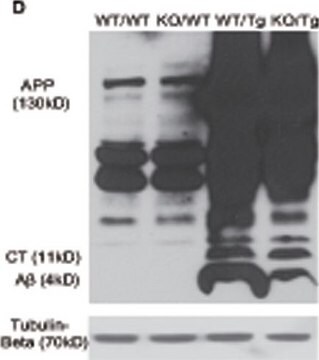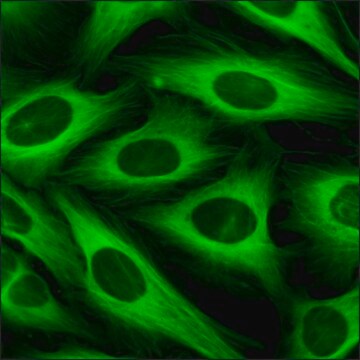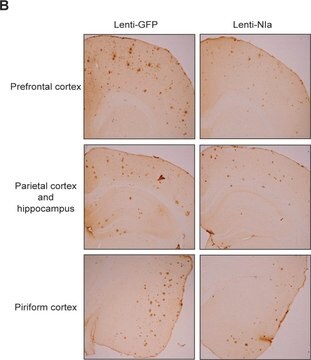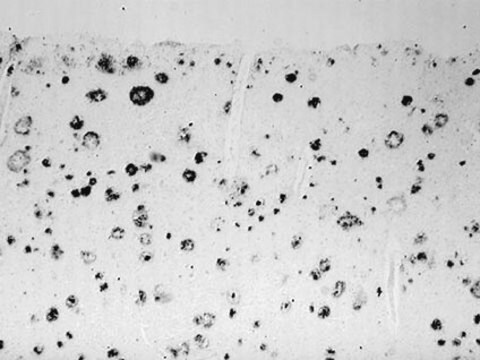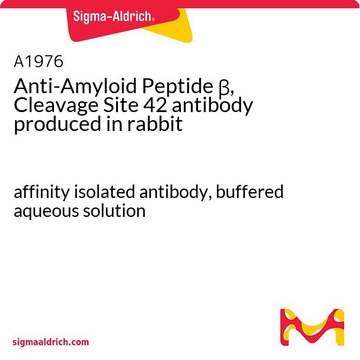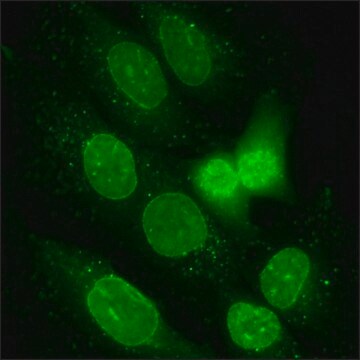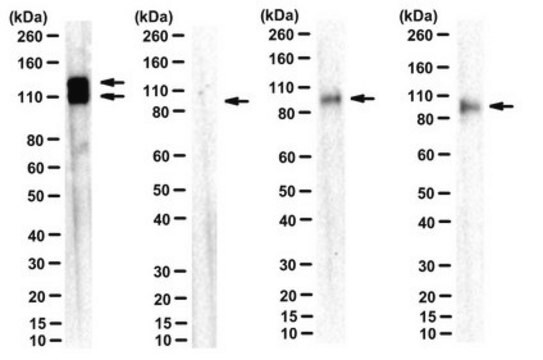MAB5208
Anti-Beta (β)-Amyloid antibody
CHEMICON®, mouse monoclonal, AB10
Sinónimos:
Anti-AAA, Anti-ABPP, Anti-AD1, Anti-APPI, Anti-CTFgamma, Anti-CVAP, Anti-PN-II, Anti-PN2, Anti-alpha-sAPP, Anti-preA4
About This Item
Productos recomendados
Nombre del producto
Anti-Amyloid Antibody, β 1-16, clone AB10, clone AB10, Chemicon®, from mouse
biological source
mouse
Quality Level
antibody form
purified immunoglobulin
antibody product type
primary antibodies
clone
AB10, monoclonal
species reactivity
human, monkey, bovine
manufacturer/tradename
Chemicon®
technique(s)
ELISA: suitable
immunocytochemistry: suitable
immunohistochemistry: suitable
immunoprecipitation (IP): suitable
western blot: suitable
isotype
IgG1
NCBI accession no.
UniProt accession no.
shipped in
wet ice
target post-translational modification
unmodified
Gene Information
human ... APP(351)
Specificity
Immunogen
Application
Neuroscience
Neurodegenerative Diseases
Immunohistochemistry: 5-10 µg/mL
Immunocytochemistry: 5-10 µg/mL
ELISA: 0.2-1.0 µg/mL
Immunoprecipitation
Optimal working dilutions must be determined by end user.
Physical form
Storage and Stability
Other Notes
Legal Information
Disclaimer
¿No encuentra el producto adecuado?
Pruebe nuestro Herramienta de selección de productos.
Storage Class
12 - Non Combustible Liquids
wgk_germany
WGK 2
flash_point_f
Not applicable
flash_point_c
Not applicable
Certificados de análisis (COA)
Busque Certificados de análisis (COA) introduciendo el número de lote del producto. Los números de lote se encuentran en la etiqueta del producto después de las palabras «Lot» o «Batch»
¿Ya tiene este producto?
Encuentre la documentación para los productos que ha comprado recientemente en la Biblioteca de documentos.
Nuestro equipo de científicos tiene experiencia en todas las áreas de investigación: Ciencias de la vida, Ciencia de los materiales, Síntesis química, Cromatografía, Analítica y muchas otras.
Póngase en contacto con el Servicio técnico